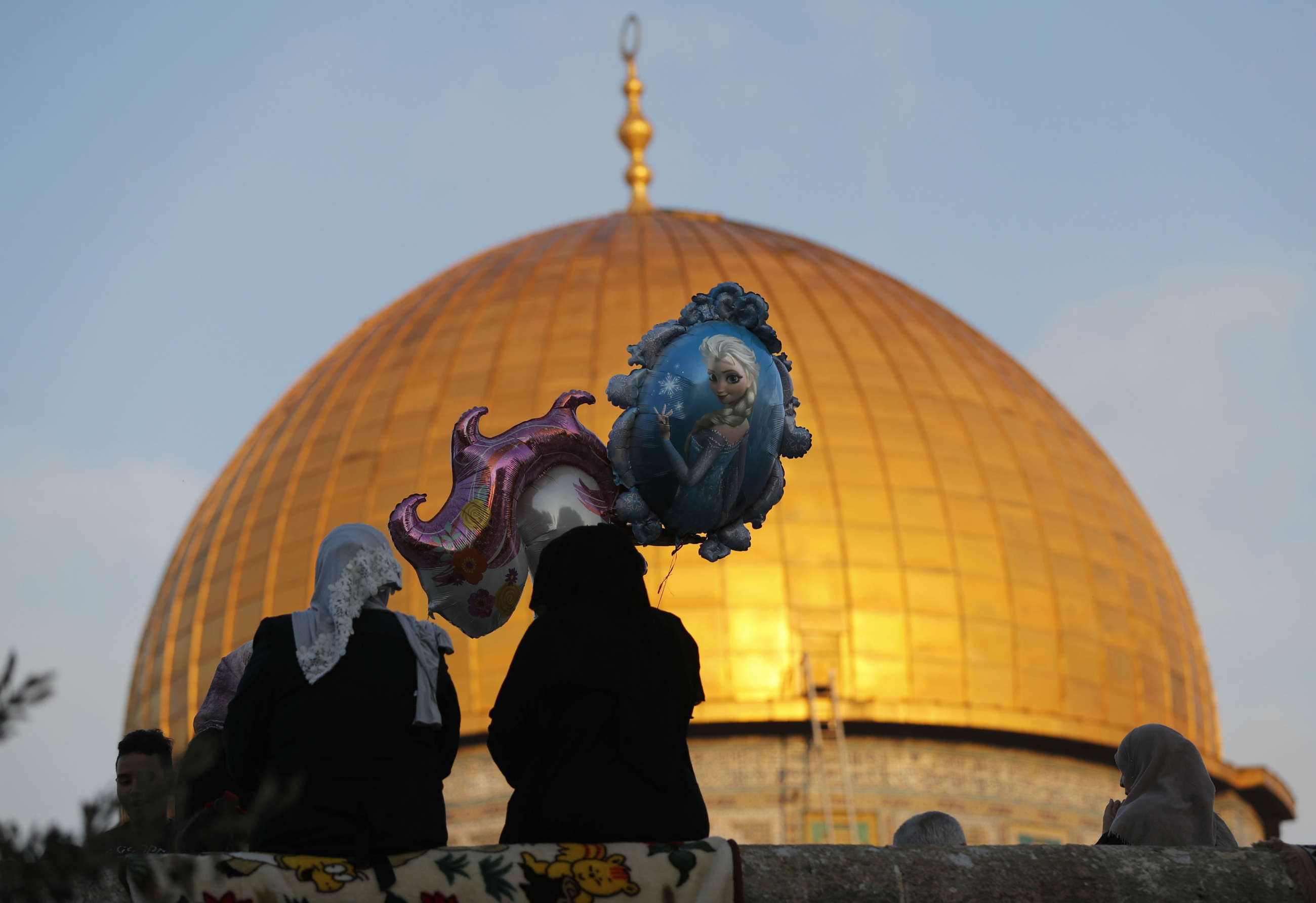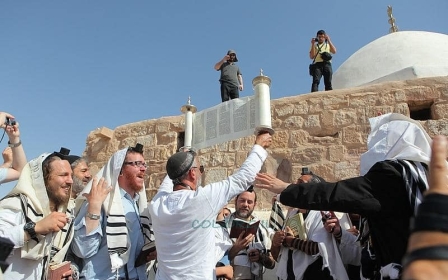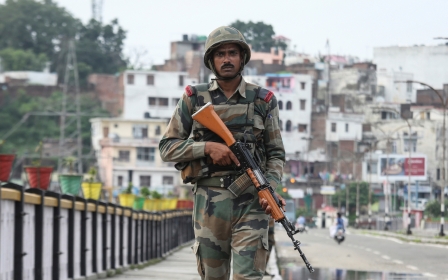Palestinians urged to pray in Al-Aqsa for Eid as settlers threaten closure

Palestinian organisations have called on Muslims to perform Eid prayers in Al-Aqsa mosque this Sunday after Jewish groups announced plans to storm the compound to mark a Jewish holiday on the same day.
The Muslim holiday of Eid al-Adha (the feast of sacrifice) and the Jewish holiday of Tisha B'Av (the ninth day of the Hebrew month of Av) will both fall on Sunday.
The Al-Aqsa compound is usually closed to non-Muslims during Muslim holidays, and is also scheduled to be closed for Jewish visitors on Sunday, according to the Jerusalem Post.
But some setttler groups have been lobbying Israeli authorities to allow Jewish visitors on the site during Tisha Be' Av, so they can mourn the destruction of a temple believed to have been located there 2,000 years ago.
The presence of both Muslim and Jewish worshippers at the site on a Muslim holiday has previously triggered violent clashes.
New MEE newsletter: Jerusalem Dispatch
Sign up to get the latest insights and analysis on Israel-Palestine, alongside Turkey Unpacked and other MEE newsletters
In June, violent clashes broke out in Jerusalem’s Al-Aqsa compound when the Israeli holiday of Jerusalem Day overlapped with the final days of the Muslim holy month of Ramadan and Israeli police allowed the Jews to enter the site.
In response to calls by Jewish groups to enter the compound on Sunday, Muslim organisations instructed imams to announce during Friday prayers that all mosques would close on Sunday, and that Eid prayer would only take place in Al-Aqsa.
“This decision comes after the organisations of the alleged Temple requested the occupation government to allow Jews to break into Al-Aqsa during Eid," said the Higher Islamic Commission, the Council for Waqf and Islamic Affairs, and the Supreme Council of Fatwa in a joint statement.
Meanwhile, the Mufti of al-Quds, Sheikh Mohamed Hussein, announced during the Friday noon prayers that the Eid prayers in Al-Aqsa will be delayed for one hour, to start at 7:30 instead of 6:30 AM on Sunday, after the announcement by settlers.
The status of the Al-Aqsa compound is one of the most sensitive issues in the Israeli-Palestinian conflict.
The Al-Aqsa compound - which includes Al-Aqsa Mosque and the Dome of the Rock - is considered the third holiest mosque in Islam. Muslims believe that the Prophet Muhammad ascended to heaven from there, as mentioned in the Quran.
Since occupying East Jerusalem in June 1967, Israelis have been praying at the Western Wall, a remnant from the Second Temple, which is considered the holiest site in Judaism.
Jews are allowed to visit the site during set hours but not pray there to avoid provoking tensions.
However, Israeli settlers who regularly enter the compound often perform Jewish prayers on the site.
Some right-wing Israeli activists and politicians have called for the destruction of the Al-Aqsa Mosque compound to make way for a third Jewish temple, and such action is deemed highly provocative.
Increasingly, right-wing Israeli activists have sought to build support for increased Jewish presence at the site, despite a longstanding joint guardianship agreement between Israel and Jordan, which retains control over Christian and Muslim holy sites in Jerusalem.
Middle East Eye delivers independent and unrivalled coverage and analysis of the Middle East, North Africa and beyond. To learn more about republishing this content and the associated fees, please fill out this form. More about MEE can be found here.




